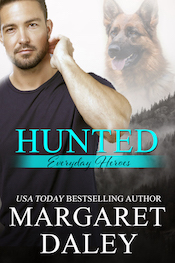 This week I’m hosting Sandra Bricker with Always the Wedding Planner Never the Bride, Bonnie Leon with Wings of Promise, Maggie Brendan with Deeply Devoted, and Connie Stevens withScars of Mercy. If you want to enter the drawings for the books, please leave a comment on one of the post during the week with your email address. I will not enter you without an email address (my way to contact you if you win). If you don’t want to leave an email address, another way you can enter is to email me at margaretdaley@gmail.com. The drawings end Sunday (September 4th) evening.
This week I’m hosting Sandra Bricker with Always the Wedding Planner Never the Bride, Bonnie Leon with Wings of Promise, Maggie Brendan with Deeply Devoted, and Connie Stevens withScars of Mercy. If you want to enter the drawings for the books, please leave a comment on one of the post during the week with your email address. I will not enter you without an email address (my way to contact you if you win). If you don’t want to leave an email address, another way you can enter is to email me at margaretdaley@gmail.com. The drawings end Sunday (September 4th) evening.
Interview of Connie Stevens:
1. What made you start writing?
I’ve loved to read since I was a child, but the idea of creating a story never occurred to me until I was about eleven years old and listened to my older sister read a short story she had written for her high school literary magazine. This explosion of excitement and ideas took place my mind when I realized I can do this!!
2. How long have you been writing? When did you sell your first book? Stories began coming together in my head when I was in high school, but I didn’t seriously begin pursuing the craft of writing for publication until around 1995. I was blessed at the 2009 ACFW conference to be awarded my first contract. Wow, what a night that was!!
3. How do you handle rejections? Like a lot of other people—I’m disappointed, but it doesn’t stop me. I might shed a tear or two of frustration, but chocolate fixes that. Then I get busy and work a little harder. I have enough rejection slips to paper the walls, but I forced myself to turn them into learning experiences and find something within the rejection to stimulate growth as a writer.
4. Why do you write? It’s cheaper than psychotherapy.
Okay, seriously. . . God has laid a message on my heart, and I have a burning desire to communicate to others the things God has taught me. Jesus reached as many people with His parables as He did through preaching, so He taught us by example that story-telling is valuable tool for reaching the masses with a message of hope.
5. What would you be doing with your free time if you weren’t writing? Free time? What’s that? Hmm, if I had unlimited free time, I’d probably spend a portion of it in my sewing room working on quilts—I DO have a sewing room if you can find it through the cobwebs—a portion would be spent working in my garden, and the rest of the time I’d probably be reading.
6. What are you working on right now? I’m working on a novella entitled, Hope’s Dwelling Place. It will be included in a collection entitled SUNDAYS IN FREDERICKSBURG. Three other authors—Margie Vawter, Lynette Sowell, and Eileen Key—and I are collaborating on this generational collection set in the Sunday houses of Fredericksburg, Texas. The four stories will span several generations of a family beginning in 1897 and going through the present day.
7. Do you put yourself into your books/characters? All the time, much to my husband’s consternation. He says he sometimes doesn’t know who he’s talking to. “Are you my wife or somebody she’s writing about?” If I don’t put myself in my character’s shoes, how can I feel their emotion and transfer that emotion to the page?
8. Tell us about the book you have out right now. The book that has released this month (August) with Heartsong Presents is SCARS OF MERCY. It’s the third book in a series set in the fictitious town of Willow Creek, Iowa. The hero, Everett Behr, was first introduced to readers in book two, REVEALING FIRE. He came to town to sabotage his father’s marriage plans, but God has done a work in his heart, and now in SCARS OF MERCY Everett is trying to deal with disfigurement. The heroine, Tillie O’Dell, wishes she could convince Everett to view his scars the way she does—they represent something beautiful to her. I hope the reader will see redemption in this book. God can take a broken vessel and make it new and useful—and beautiful.
9. Do you have any advice for other writers? Don’t quit. God won’t start something in your life that He doesn’t intend to finish.
10. How important is faith in your books? With today’s market inundated with worldly themes and topics we’d be embarrassed for our children to read, writing a story of faith is like taking back what the world stole. There are a lot of secular books, movies, video games, TV, and other sources of entertainment competing for our attention. Not all of them are bad, but if we, as writers of Christian fiction, can give someone an alternative that doesn’t compromise Christian principles and convictions, it’s worth every drop of sweat. So, for me, without the faith element, what’s the point?
11. What themes do you like to write about? First of all, I love writing historicals. I get lost in the historical research. But as far as themes go, I like to write about what God has taught me. Most recently that has been trusting God despite not being able to see around the bend in the road.
12. What is your favorite book you’ve written and why? I remember hearing another author say their favorite book is the one they are currently working on, and that is probably true for me also. I have to love what I’m working on right now enough that I can let go of the books I’ve already completed and focus my entire heart’s attention on my current work-in-progress.
13. What is your writing schedule like? After I’ve written a working synopsis, a goal/motivation/conflict chart, and I’ve researched all I think I need to be able to begin (I do constant research throughout the writing because there is always a question that pops up, and I have to stop and find the answer before I can proceed.) Then I establish a timeline for my story and put together a story board that hangs on the wall in front of me. Once I’m ready to start chapter one, I set up a calendar with short term due dates for sending chapters to my critique group, as well as my due date for turning in the manuscript.. I don’t necessarily have word-count goal for each day, and I don’t keep specific hours. Sometimes I need the daylight hours to run errands or fulfill other obligations. When that happens it’s not unusual for me to write after supper until around 11:00 at night. Other days, I may begin writing in the morning and stop around 3:00. The point is, I fit my writing time into my life in a flexible way. It enables me to meet deadlines but still have time for family and friends.



